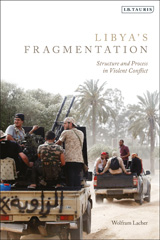2020 - Tauris
eBook
Digital Version
Nur Streaming | kein Download | kein Kopieren/Einfügen | kein Drucken
Libya's Fragmentation
304 p.
- After the overthrow of the Qadhafi regime in 2011, Libya witnessed a dramatic breakdown of centralized power. Countless local factions carved up the country into a patchwork of spheres of influence. Almost no nationwide or even regional organizations emerged, and no national institutions survived the turbulent descent into renewed civil war. Only the leader of one armed coalition, Khalifa Haftar, managed to overcome competitors and centralize authority over eastern Libya. But tenacious resistance from armed groups in western Libya blocked Haftar's attempt to seize power in the capital Tripoli. Rarely does political fragmentation occur as radically as in Libya, where it has been the primary obstacle to the re-establishment of central authority. This book analyzes the forces that have shaped the country's trajectory since 2011. Confounding widely held assumptions about the role of Libya's tribes in the revolution, Wolfram Lacher shows how war transformed local communities and explains why Khalifa Haftar has bee
- n able to consolidate his sway over the northeast. Based on hundreds of interviews with key actors in the conflict, Lacher advances an approach to the study of civil wars that places the transformation of social ties at the centre of analysis. [Publisher's text].
- Special access authorizations may apply; please contact us for further information.
-
Informationen
ISBN: 9780755600823


